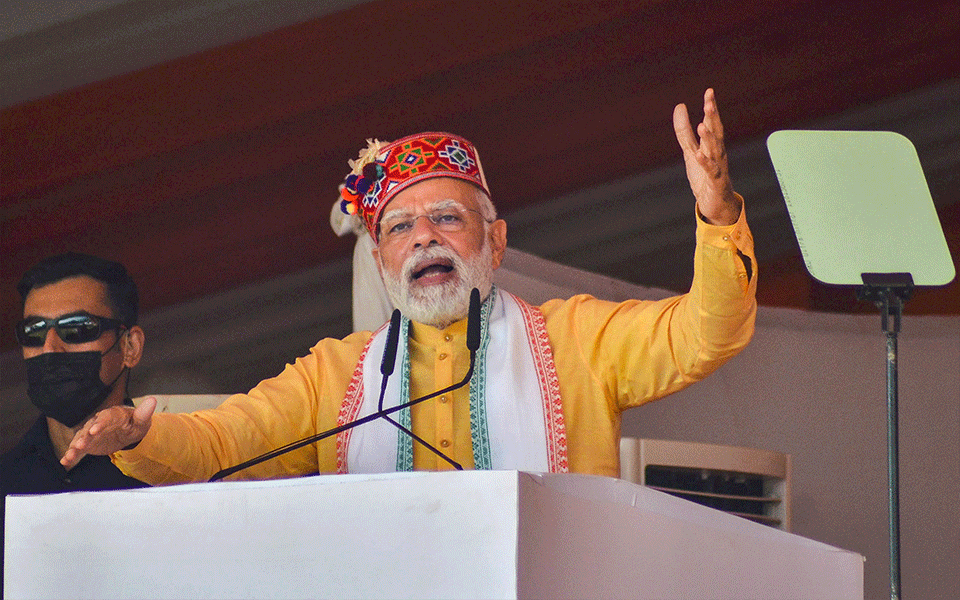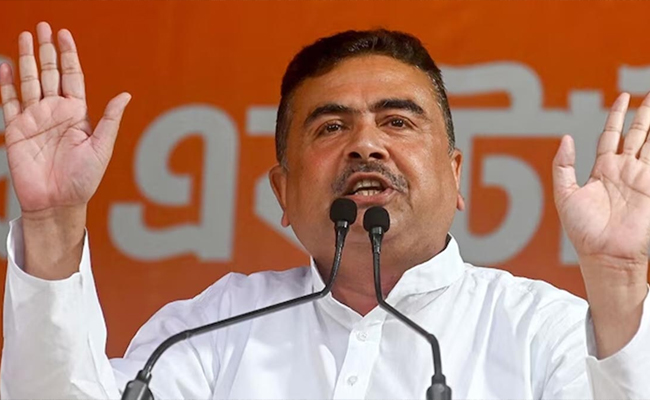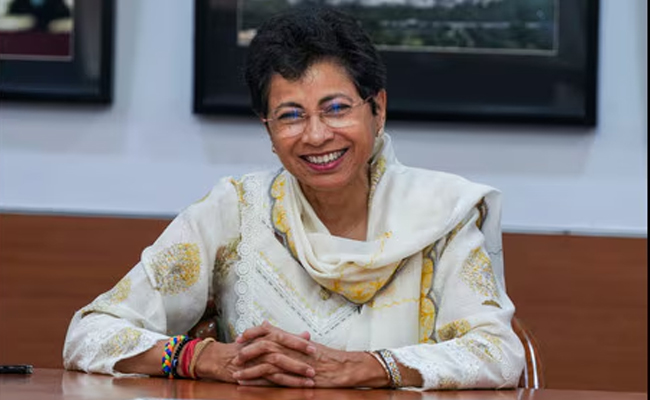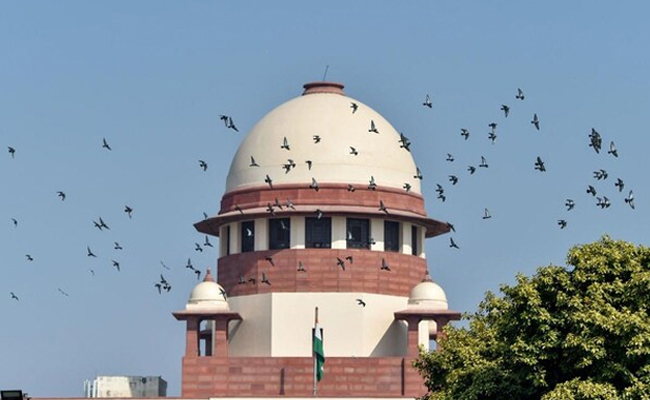Kevadia (Gujarat) (PTI): Prime Minister Narendra Modi on Friday said India has the potential to lead the fourth industrial revolution and the government has worked on reforms to make the country a manufacturing hub of the world.
He said that the fourth industrial revolution is as much about new technology, as it is about innovative thinking.
"Due to various factors, India may have missed being a part of earlier industrial revolutions. But India has the potential to lead Industry 4.0, because, for the first time in recent history, we have many different factors like demography, demand and decisive governance coming together," he said through a message.
The Prime Minister's message was read by a Joint secretary of the Ministry of Heavy Industries here at the conference on Industry 4.0.
Modi added that the industry and entrepreneurs play a key role in making India a vital link in global value chains.
"We have worked on reforms and incentives to make India a tech-powered manufacturing hub of the world," he added.
Speaking at the event, Heavy Industries Minister Mahendra Nath Pandey said that the government is taking a series of steps to boost manufacturing through industrial revolution 4.0.
"India is moving towards becoming a hub of global manufacturing... 3D printing, machine learning, data analytics and IoT are key to promoting industrial growth," Pandey said.
He added that the production-linked incentive scheme for advanced chemistry cell (ACC) battery storage will help India in cutting down its imports and become an exporter in the coming years.
Companies selected under the scheme will receive incentives under the Rs 18,100-crore programme to boost local battery cell production.
The government has approved the Production-Linked Incentive (PLI) Scheme for the 'National Programme on ACC Battery Storage' for achieving a manufacturing capacity of 50 Giga Watt Hour (GWh).
The minister also flagged off 175 EV buses for Gujarat (75) and Karnataka (100).
He also inaugurated a Centre for Industry 4.0 (C4i4) Lab in Pune.
In 2019, Faster Adoption and Manufacturing of Electric Vehicles in India Phase II (FAME India Phase II)' for the promotion of Electric Mobility in the country was approved. Through the scheme, it is planned to support 10 Lakhs e-two wheelers, 5 lakh e-3 wheelers, 55,000 4-wheelers and 7,000 e-buses.
With the advent of Industry 4.0, the new digital industrial technology, businesses are poised to benefit from the next generation of technological breakthroughs to improve quality, efficiency and productivity.
The Ministry of Heavy Industries has been making concerted efforts to generate awareness and to take forward Smart Manufacturing and Industry 4.0.
Participating virtually, Gujarat Chief Minister Bhupendra Patel said that the auto sector will hugely benefit from industrial revolution 4.0.
He further added that the production and promotion of EVs will help reducing carbon footprint also.
Let the Truth be known. If you read VB and like VB, please be a VB Supporter and Help us deliver the Truth to one and all.
Kolkata (PTI): Leader of the Opposition in the West Bengal Assembly, Suvendu Adhikari, on Sunday termed Chief Minister Mamata Banerjee's allegations over the ongoing SIR in the state as "baseless and exaggerated", and accused her of trying to derail the electoral roll revision exercise for political reasons.
In a post on X, Adhikari also said he has written to Chief Election Commissioner Gyanesh Kumar, and claimed that the Special Intensive Revision (SIR) of the electoral rolls was "exposing the rot in the voter lists - bogus entries, duplicates, and infiltrators that have been nurtured under the TMC's watch for years".
The BJP leader alleged that the SIR exercise was "damaging the TMC's electoral prospects", and that's why the CM was resorting to hysteria".
Banerjee had on Saturday written to the CEC, alleging that the ongoing SIR of electoral rolls has been turned into an exercise to exclude voters rather than correct records.
In her third letter to Kumar since the beginning of SIR, the chief minister accused the Election Commission of "political bias, insensitivity, and high-handedness" during the exercise.
“I would again reiterate that her claims are nothing but a desperate attempt to derail this crucial process, which is exposing the rot in our voter lists - bogus entries, duplicates and infiltrators that have been nurtured under TMC’s watch for years,” Adhikari alleged in the post.
In his letter to the CEC, dated January 10, the leader of the opposition described the chief minister’s objections as a “politically motivated attempt” to obstruct the SIR and termed the ECI’s move as "essential to ensure free, fair and transparent" elections in the state.
"The chief minister’s portrayal of this exercise as ‘unplanned, insensitive and inhuman’ is nothing short of a gross exaggeration, blown out of proportion to create public hysteria and shift focus from her government’s failures," the BJP leader alleged.
He claimed that the SIR exercise had "exposed vulnerabilities in the electoral rolls that threatened the ruling party’s electoral prospects", triggering what he termed “unfounded outbursts” from the state administration.
On December 16, the Election Commission published the draft electoral rolls after the first phase of the SIR, with the electorate dropping from 7.66 crore to 7.08 crore following the deletion of over 58 lakh names.
The second phase, which began on December 27, involves hearings of 1.67 crore electors under scrutiny, including 1.36 crore flagged for logical discrepancies and 31 lakh whose records lack mapping.
The LoP urged the Election Commission to continue the voter list revision exercise with diligence, asserting that the SIR is a routine constitutional process and should not be politicised.





